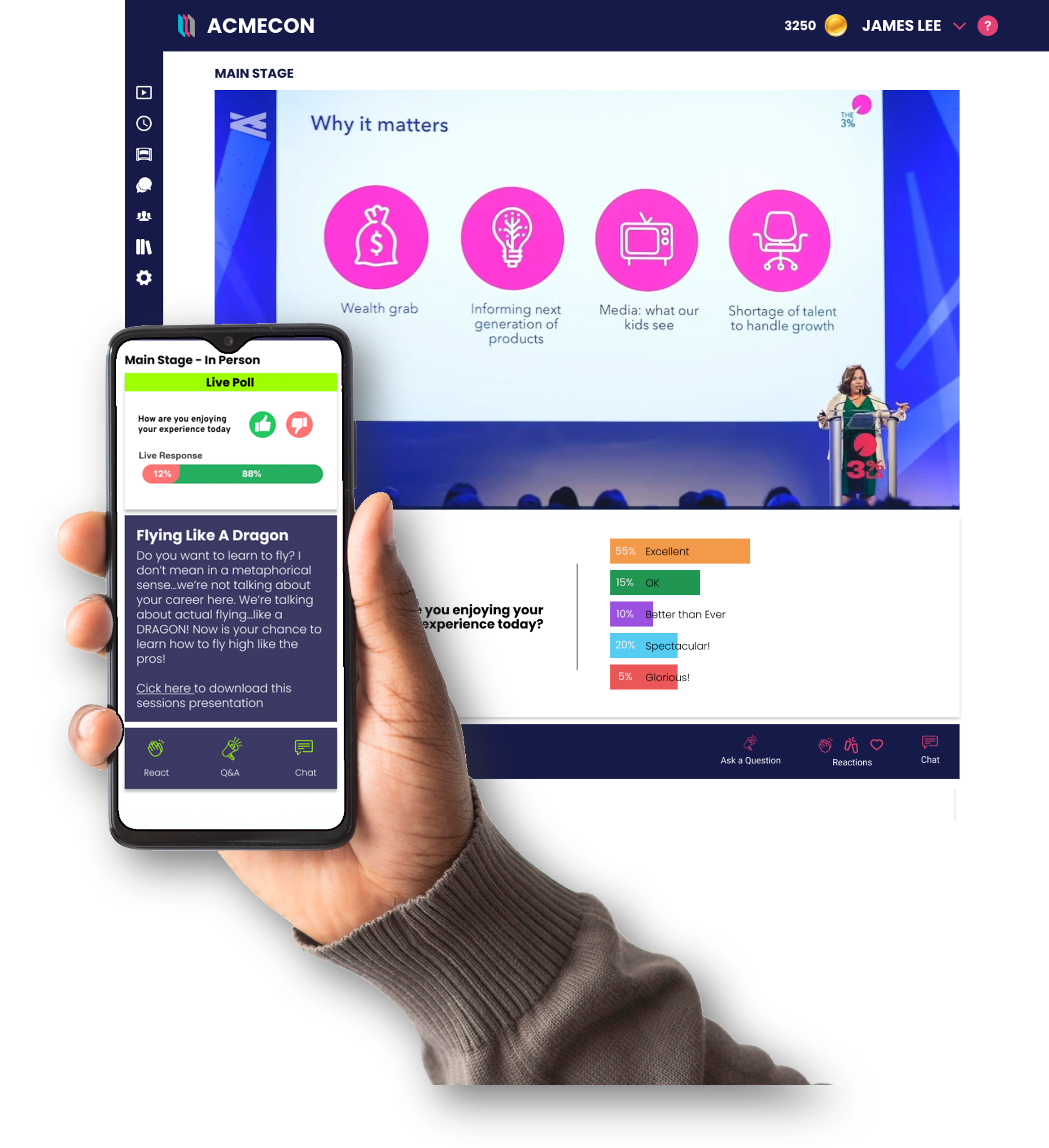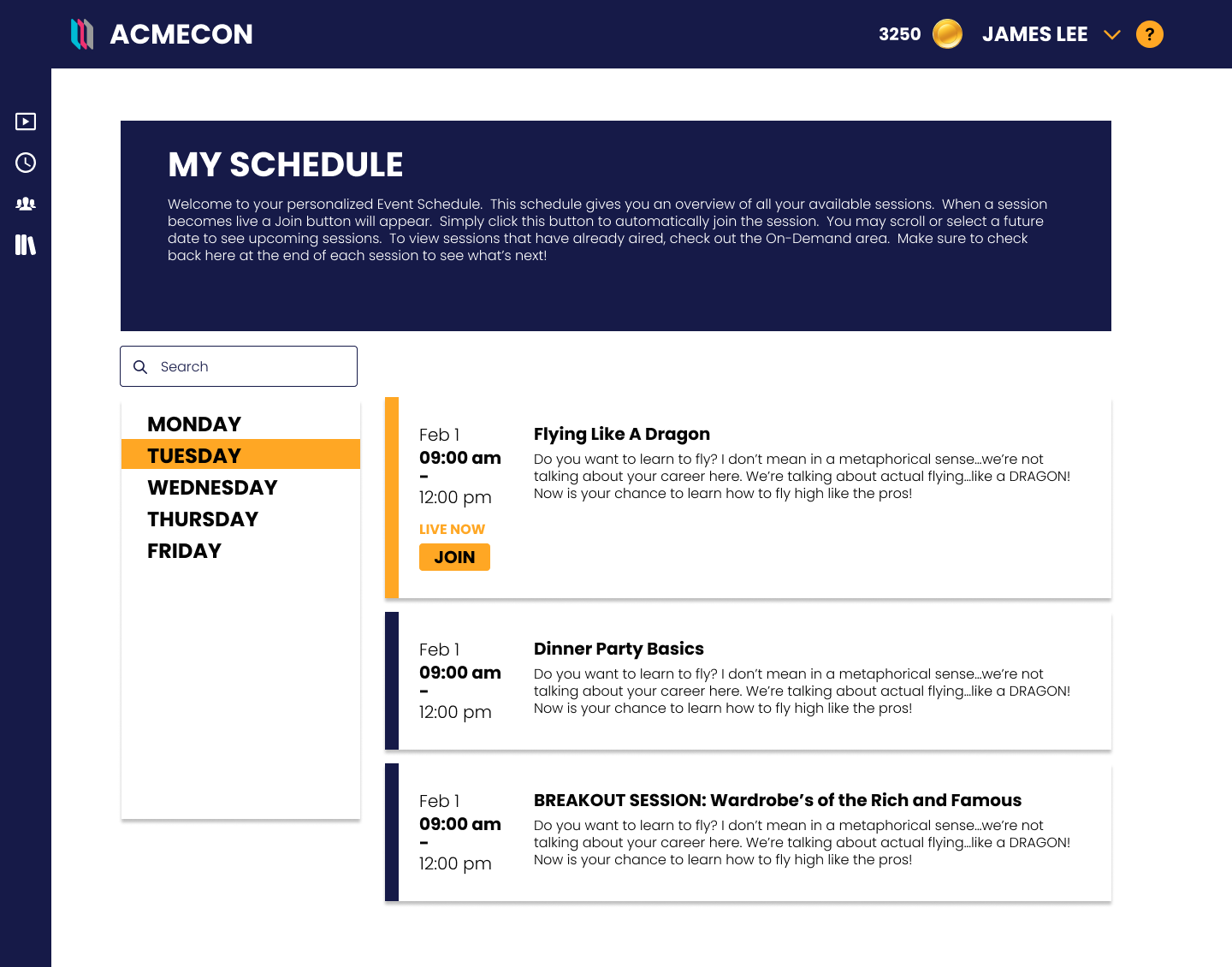Let Do This!
Planning and managing events can be a daunting task, with numerous moving parts and countless details to consider. But in today’s digital age, event management software has emerged as a powerful tool to streamline and elevate the event experience. Whether you’re organizing a conference, trade show, or festival, event management software offers a comprehensive solution to simplify the entire event lifecycle, from planning and registration to execution and post-event analysis.
In this post, we will explore the power of event management software and its significance in revolutionizing the event industry. We’ll dive into the key features and benefits of using such software, highlighting how it can transform your events, enhance attendee experiences, and drive success. With event management software at your disposal, you can bid farewell to manual processes, spreadsheets, and administrative headaches, and embrace a seamless and efficient approach to event planning and execution.
Join us as we delve into the world of event management software, uncover its capabilities, and discover how it can make a remarkable difference in your event operations. Whether you’re an event professional or a business owner venturing into event management, this blog post will equip you with the knowledge and insights to take your events to the next level. Let’s unlock the power of event management software and create unforgettable experiences for your attendees.

Understanding Event Management Software
Event management software refers to a digital solution that empowers event organizers to plan, execute, and manage events efficiently. It encompasses a wide range of tools and features designed to streamline various aspects of event management, such as registration, ticketing, session scheduling, attendee management, communication, and analytics. By centralizing these processes within a single platform, event management software simplifies event operations and enhances overall productivity.
Top Features and Capabilities
- Registration and Ticketing: Robust registration and ticketing functionality is a key component of every successful event. Allowing attendees to easily register for events, purchase tickets, and receive confirmations eliminates manual paperwork and automates the process, saving time for both organizers and participants.
- Session Scheduling: With session scheduling tools, event management software enables organizers to create and manage event agendas effortlessly. Attendees can view the schedule, choose sessions of interest, and receive reminders, ensuring a smooth and well-coordinated event flow.
- Communication Tools: Effective communication is vital for event success, and event management software offers various communication tools to facilitate seamless interaction. Features such as email notifications, push messaging, and real-time updates keep attendees informed, connected, and engaged throughout the event journey.
- Audience Engagement: Event Management software can provides a great way for the audience to get involved in your event. With tools like Live Polling, Virtual Presence, and Q&A, sessions become highly interactive and engaging for the audience.
- Analytics and Reporting: Event management software provides powerful analytics and reporting capabilities, enabling organizers to gain valuable insights into event performance, attendee behavior, and overall success metrics. This data-driven approach allows for informed decision-making, optimizing future events, and delivering enhanced experiences.
Event management software is a versatile and comprehensive solution that empowers organizers to streamline event operations, enhance attendee experiences, and achieve event success. By leveraging its key features and capabilities, event professionals can focus more on creating exceptional events and less on administrative tasks, ultimately driving greater satisfaction and reducing friction among attendees and stakeholders.
Benefits of Event Management Software

Event Management Software offers several key advantages, including:
- Efficiency and Time-Saving: One of the significant advantages of event management software is its ability to streamline event operations and improve overall efficiency. By automating repetitive tasks, such as registration, ticketing, and data entry, organizers can save valuable time and allocate resources more effectively. This streamlined approach allows for smoother event execution, reduces manual errors, and frees up staff to focus on delivering a memorable experience for attendees.
- Resource Optimization: Event management software helps optimize resources by centralizing event-related data, documents, and workflows. Organizers can access critical information in real-time, collaborate with team members, and streamline communication processes. This centralized approach reduces duplication of effort, minimizes miscommunication, and enhances overall resource management, leading to more cost-effective and well-coordinated events.
- Seamless Event Navigation: Event management software offers attendees easy access to event schedules, session details, maps, and exhibitor information. By providing intuitive navigation and real-time updates, attendees can effortlessly navigate the event space, maximize their experience, and discover relevant content, sessions, or exhibitors.
- Real-Time Analytics: Event management software offers robust analytics and reporting capabilities, providing organizers with real-time insights into event performance. From attendance numbers to session popularity and attendee engagement, these analytics help measure event success, identify areas for improvement, and make data-driven decisions. By leveraging these insights, organizers can refine future event strategies, optimize resources, and deliver even better experiences for attendees.
- Informed Decision-Making: Armed with comprehensive event data and analytics, organizers can make informed decisions to enhance event planning and execution. By analyzing attendee feedback, session ratings, or engagement metrics, event professionals can identify trends, understand attendee preferences, and tailor future events to meet the needs and expectations of their target audience. This data-driven approach increases the likelihood of event success and helps build a loyal community of attendees.
Software empowers organizers to streamline event operations, enhance attendee experiences, and drive success. By leveraging its benefits, event professionals can create memorable events, maximize efficiency, and deliver exceptional value to both attendees and stakeholders.

Automating Event Management with Software
Benefits of Automation
- Time and Resource Savings: Event software automates repetitive and time-consuming tasks, reducing manual effort and saving valuable time for event organizers. Automated processes, such as registration, ticketing, and attendee data management, streamline operations, allowing organizers to focus on other critical aspects of event planning and execution. This time-saving benefit translates into increased efficiency and productivity for the entire event team.
- Error Reduction: By automating various event management processes, software minimizes the risk of human errors that can occur during manual data entry or communication. Automated systems ensure accurate registration information, eliminate double bookings or scheduling conflicts, and facilitate seamless communication with attendees. This error reduction leads to smoother event operations and improved overall attendee satisfaction.
Automated Processes
- Event Registration: Event management software automates the registration process, enabling attendees to sign up for events online, select ticket types, and complete the registration form seamlessly. The software validates information, sends automatic confirmation emails, and generates unique registration codes or tickets, eliminating the need for manual processing and reducing administrative overhead.
- Ticketing and Payments: With automated ticketing, event management software provides secure online payment options, allowing attendees to purchase tickets easily. The software handles payment processing, sends electronic tickets or QR codes, and generates real-time ticket availability updates. This automation simplifies the ticketing process for both attendees and organizers, improving the overall ticket purchasing experience.
- Communication and Reminders: Event management software automates communication by sending automated event updates, reminders, and personalized notifications to attendees. These communications can include event details, session changes, or important announcements. By automating these processes, organizers can ensure consistent and timely communication, reducing the chance of information gaps or missed updates.
- Reporting and Analytics: Event software generates automated reports and analytics, providing organizers with real-time insights into event performance. Data on registration numbers, ticket sales, attendee demographics, session attendance, and engagement metrics can be accessed easily. This automation eliminates the need for manual data gathering and simplifies the analysis of event success and attendee behavior.
Automation plays a pivotal role in event management, streamlining processes, reducing manual effort, and enhancing overall efficiency. By leveraging event management software’s automation capabilities, organizers can optimize resource utilization, minimize errors, and focus on delivering exceptional event experiences for attendees. The power of automation empowers event professionals to execute events with precision, accuracy, and enhanced attendee satisfaction.
Conclusion
Event software has emerged as a powerful tool that empowers event organizers to streamline operations, enhance attendee experiences, and drive success in the ever-evolving event industry. By leveraging the capabilities of event management software, organizers can simplify registration and ticketing processes, create well-structured event agendas, engage attendees through seamless communication, automate repetitive tasks, and gain valuable insights through analytics.
From concept to closeout, event management software supports every stage of event planning and execution. It revolutionizes the way events are managed, freeing up time and resources for organizers to focus on delivering exceptional experiences for attendees. By centralizing event-related data and processes, event management software ensures efficient collaboration among team members, minimizes errors, and maximizes productivity.
Whether you’re organizing conferences, trade shows, or festivals, event management software offers a comprehensive solution to elevate your events and stay ahead of the competition. By embracing this technology, event professionals can unlock the potential for growth, innovation, and memorable experiences.
So, let’s embrace the power of event management software and embark on a journey to transform your events. Discover the seamless automation, enhanced attendee engagement, and data-driven insights that will revolutionize the way you plan, execute, and evaluate events. With event management software as your trusted partner, the possibilities are endless, and your events will thrive like never before. Get ready to create unforgettable experiences and make your mark in the dynamic world of events.
To see how Parallel can help reduce friction and achieve your goals explore our features and be sure to schedule a demo


